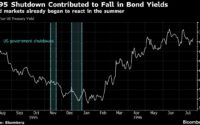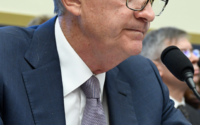In the wake of the collapse of Silicon Valley Bank, conventional wisdom has been that banks will cut lending, known as a credit crunch, that will damage the economy.
On Thursday, St. Louis Federal Reserve President James Bullard said he was “less enamored’ with this forecast.
“Only about 20% of lending is going through the banking system and only a fraction of the banks are small or regional banks
“I just don’t think it is big enough by itself to send the U.S. economy into recession,” Bullard said.
Bullard said he doubted there would be a pullback of lending by small and medium sized banks because loan demand remains robust.
Bullard said it was too soon to know for sure and he would be watching lending closely.
In a speech in Little Rock, Ark., Bullard downplayed concern over financial stress in the wake of the failure of Silicon Valley Bank. He said that stress has already subsided in recent days.
Stepping back, financial conditions metrics remain low compared with the financial crisis of 2007-2009 and the onset of the pandemic in 2020, he said.
The St. Louis Fed president said recently that he thinks the Fed needs to continue to raise interest rates to a range of 5.5%-5.75% to put pressure on high inflation. Last month, the Fed raised its benchmark rate by 25 basis points to a range of 4.75%-5%.
Bullard said the Fed’s response to the bank weakness has been “swift and appropriate” and “appropriate” interest-rate policy can continue to put downward pressure on inflation.”
At the same time, data on the real economy has been generally stronger than expected during the first quarter “and inflation remains too high,” he said.
Bullard said that some of the negative macroeconomic fallout from a period of financial stress might also be mitigated by the drop in longer-term U.S. Treasuries.
“Financial stress can be harrowing, but tends to reduce the level of interest rates,” he said.
He noted that during the current stress, the 10-year yield
TMUBMUSD10Y,
has declined by about 50 basis points and the 2-year Treasury yield
TMUBMUSD02Y,
has dropped by about 100 basis points.


